June, 2011
Books, New in Ceasefire, Photo Essays - Wednesday, June 22, 2011 14:57 - 0 Comments
Books">Mapping a metropolis Books
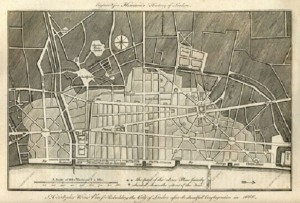
Andrew Fleming reviews Mapping London, the new book by Simon Foxell, which examines the ways the British capital has been transcribed, mapped and understood over the centuries, from the mid-sixteenth century Shoreditch surrounded by windmills to the 1951 attempt to delineate the architecture of the South Bank.
Music & Dance, New in Ceasefire - Tuesday, June 21, 2011 21:36 - 1 Comment
Music Benjamin Grosvenor, Wigmore Hall (Piano recital)
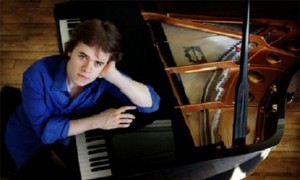 Ceasefire's opera critic, Paul Guest, reviewing a piano recital by Benjamin Grosvenor at Wigmore Hall, finds a "remarkable talent".
Ceasefire's opera critic, Paul Guest, reviewing a piano recital by Benjamin Grosvenor at Wigmore Hall, finds a "remarkable talent".
Classical & Opera - Tuesday, June 21, 2011 21:33 - 1 Comment
Opera Tosca (ROH)
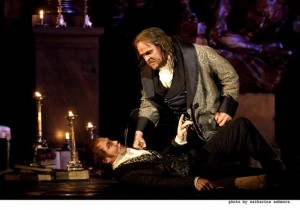 In his latest review, Ceasefire's opera critic, Paul Guest, gives his verdict on a production of Tosca at the Royal Opera House.
In his latest review, Ceasefire's opera critic, Paul Guest, gives his verdict on a production of Tosca at the Royal Opera House.
Classical & Opera, Interviews - Tuesday, June 21, 2011 5:14 - 1 Comment
Opera Nicky Spence: An Interview
 In an exclusive interview, Ceasefire's opera critic, Paul Guest, speaks to one of Opera's brightest stars, Nicky Spence, due to appear in 'Two Boys', Nico Muhly's new production.
In an exclusive interview, Ceasefire's opera critic, Paul Guest, speaks to one of Opera's brightest stars, Nicky Spence, due to appear in 'Two Boys', Nico Muhly's new production.
Books, Ideas, New in Ceasefire - Tuesday, June 21, 2011 0:00 - 1 Comment
Books How to aim your gun
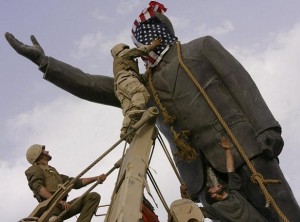 In his new book, 'Third World Protest', Rahul Rao attempts to ground the sterile world of international normative theory in the practices and discourses of subaltern protest groups. Ceasefire's deputy editor, Musab Younis, reviews Rao's arguments.
In his new book, 'Third World Protest', Rahul Rao attempts to ground the sterile world of international normative theory in the practices and discourses of subaltern protest groups. Ceasefire's deputy editor, Musab Younis, reviews Rao's arguments.
Features, New in Ceasefire - Monday, June 20, 2011 0:00 - 5 Comments
Essay Creating the Future: Victory Begins with Defeat
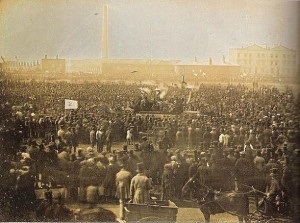 Many view history as a succession of defeats for the left. This viewpoint, closely tied to ideology, ignores the effects particular movements have on the culture, an important contributor to political change. In a first of a series of essays, Paul Schloss considers a defeat that became a victory, but only decades after the event. Practical visionaries, stubborn in their values but flexible in their ideas may, he suggests, be the secret to such victories. He looks at a famous example.
Many view history as a succession of defeats for the left. This viewpoint, closely tied to ideology, ignores the effects particular movements have on the culture, an important contributor to political change. In a first of a series of essays, Paul Schloss considers a defeat that became a victory, but only decades after the event. Practical visionaries, stubborn in their values but flexible in their ideas may, he suggests, be the secret to such victories. He looks at a famous example.
New in Ceasefire, Radical Aesthetics - Sunday, June 19, 2011 0:00 - 0 Comments
Radical Aesthetics The politics of art collections
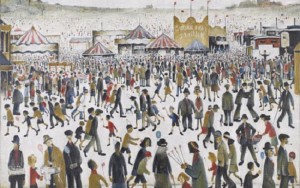 A selection of works from the Government Art Collection is currently on display at the Whitechapel gallery. Ceasefire's Art Critic, Daniel Barnes, looks at the "insidious desire to use art to exercise political power."
A selection of works from the Government Art Collection is currently on display at the Whitechapel gallery. Ceasefire's Art Critic, Daniel Barnes, looks at the "insidious desire to use art to exercise political power."
Music & Dance - Saturday, June 18, 2011 0:00 - 0 Comments
Music Nico Muhly: Seeing is Believing (Review)
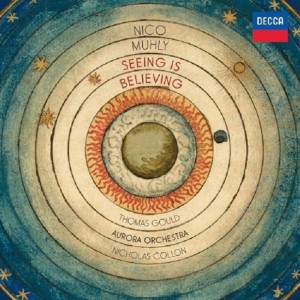 Ceasefire's opera critic, Paul Guest, reviews "Seeing is believing", the latest music CD from Nico Muhly, an "undisputed champion of contemporary classical music".
Ceasefire's opera critic, Paul Guest, reviews "Seeing is believing", the latest music CD from Nico Muhly, an "undisputed champion of contemporary classical music".
Classical & Opera - Saturday, June 18, 2011 0:00 - 0 Comments
Opera Seven Angels (Opera Group)
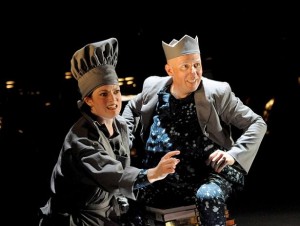 In his latest review, Ceasefire's opera critic, Paul Guest, gives his verdict on a production of Seven Angels at the Opera Group.
In his latest review, Ceasefire's opera critic, Paul Guest, gives his verdict on a production of Seven Angels at the Opera Group.
In Theory, New in Ceasefire - Friday, June 17, 2011 0:00 - 1 Comment
In Theory Aristotle (Part II)
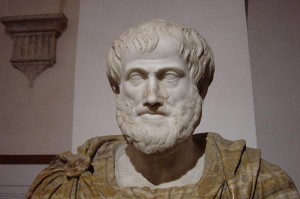 In part II of his piece on Aristotle, political theorist Andrew Robinson offers a critical assessment, and a look at the philosopher's relevance today.
In part II of his piece on Aristotle, political theorist Andrew Robinson offers a critical assessment, and a look at the philosopher's relevance today.

